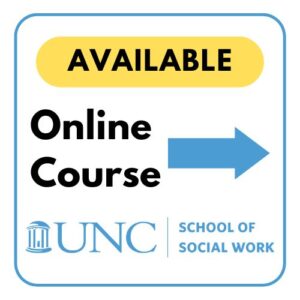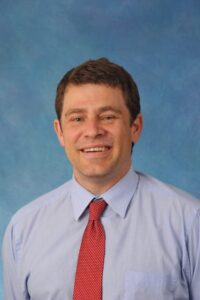Format: Self-paced / asynchronous program
Engage with this recorded program on your schedule.
 CE: 2 CEs total, read for more information on CEs
CE: 2 CEs total, read for more information on CEs
Fee: $35,read for more information on fees and scholarships
Description:
Loss and grief have become familiar experiences in the lives of individuals, families, and communities as we navigate pandemic and emerging post-pandemic life. Those mourning deaths of loved ones – further complicated by social distancing restrictions – are at risk of prolonged grief and complex bereavement disorders. As dust settles and people start moving forward in a new way, grief is expected to be a large part of the mental health burdens people carry. There has been a cascade of loss—from isolation, increased vulnerability, disrupted schooling, altered family dynamics, as well as having to adjust and readjust to what “normal” means. In this workshop, Leeza Park and Justin Yopp will draw from years of work with bereaved family members and people facing serious illness, to offer lessons on how to support people to process and incorporate grief, move towards healing, and reimagine life when their circumstances tragically change.
Learning objectives:
At the conclusion of this workshop, participants will be able to:
- Explore 5 stages of grief as a dynamic process, and at least 1 process to help support and validate grief, including complicated grief, where the person is.
- Describe and apply at least 2 strategies to help people build hope and flexibility in the face of devastating loss and emotional pain.
Trainers:
 Eliza “Leeza” Park, M.D. is an Assistant Professor of Psychiatry and Medicine at the University of North Carolina at Chapel Hill. Her work focuses on the intersection of psychiatry, oncology, and palliative care. She serves as a psychiatrist for the Comprehensive Cancer Support Program where she specializes in treatment of people with cancer, particularly those with advanced illness. Her research focuses on the mental health and palliative care outcomes of patients and families affected by advanced forms of cancer. She has also published on bereavement patterns among widowed parents, predictors of maternal depression, treatment decision-making, and psychological impact of cancer. She has received numerous awards for her research. She is currently funded by a NCI K07 career development award to develop psychosocial interventions for parents and families.
Eliza “Leeza” Park, M.D. is an Assistant Professor of Psychiatry and Medicine at the University of North Carolina at Chapel Hill. Her work focuses on the intersection of psychiatry, oncology, and palliative care. She serves as a psychiatrist for the Comprehensive Cancer Support Program where she specializes in treatment of people with cancer, particularly those with advanced illness. Her research focuses on the mental health and palliative care outcomes of patients and families affected by advanced forms of cancer. She has also published on bereavement patterns among widowed parents, predictors of maternal depression, treatment decision-making, and psychological impact of cancer. She has received numerous awards for her research. She is currently funded by a NCI K07 career development award to develop psychosocial interventions for parents and families.
Justin Yopp, Ph.D. is a clinical psychologist and Associate Professor in the Department of Psychiatry at the UNC Chapel Hill. As a member of UNC’s Comprehensive Cancer Support Program, he offers psychotherapy, assessment, and consult-liaison services for pediatric and adult oncology populations at the North Carolina Cancer Hospital. He specializes in working with patients with cancer who have young children at home and is involved in Dr. Park’s research in this area. Dr. Yopp also co-leads the Widowed Parent Program that provides support for and conducts research with parents who have lost a spouse or partner and are raising children on their own. He co-authored The Group: Seven Widowed Fathers Reimagine Life, which weaves together contemporary thinking on grief, adaptation and resiliency with the story of the first group of men who participated in the support group. Prior to joining the faculty at UNC, Dr. Yopp served as a psychologist at St. Jude Children’s Research Hospital in Memphis, TN.
References:
- Davis, E. L., Deane, F. P., & Lyons, G. C. B. (2015). Acceptance and valued living as critical appraisal and coping strengths for caregivers dealing with terminal illness and bereavement. Palliative & Supportive Care, 13(2), 359-368. https://doi.org/10.1017/S1478951514000431
- Fitzgerald, D. A., Nunn, K., & Isaacs, D. (2021). What we have learnt about trauma, loss and grief for children in response to COVID-19. Paediatric Respiratory Reviews. https://doi.org/10.1016/j.prrv.2021.05.009
- Johns, L., Blackburn, P., & McAuliffe, D. (2020). COVID-19, prolonged grief disorder and the role of social work. International Social Work, 63(5), 660-664. https://doi.org/10.1177/0020872820941032
- Park, E. M., Deal, A. M., Yopp, J. M., Edwards, T., Resnick, S. J., Song, M., Nakamura, Z. M., & Rosenstein, D. L. (2018). Understanding health‐related quality of life in adult women with metastatic cancer who have dependent children. Cancer, 124(12), 2629-2636. https://doi.org/10.1002/cncr.31330
- Plakun, E. M. (2020). Psychotherapy in the post-COVID-19 era. Journal of Psychiatric Practice, 26(4), 309-312. https://doi.org/10.1097/PRA.0000000000000476
- Stroebe, M., & Schut, H. (2021). Bereavement in times of COVID-19: A review and theoretical framework. Omega: Journal of Death and Dying, 82(3), 500-522. https://doi.org/10.1177/0030222820966928
- Tang, S., & Xiang, Z. (2021). Who suffered most after deaths due to COVID-19? prevalence and correlates of prolonged grief disorder in COVID-19 related bereaved adults. Globalization and Health, 17(1), 19-19. https://doi.org/10.1186/s12992-021-00669-5
- Yopp, J. M., & Rosenstein, D. L. (2012). Single fatherhood due to cancer. Psycho-Oncology, 21(12), 1362-1366. https://doi.org/10.1002/pon.2033
- Yopp, J. M., & Rosenstein, D. L. (2013). A support group for fathers whose partners died from cancer. Clinical Journal of Oncology Nursing, 17(2), 169-173. https://doi.org/10.1188/13.CJON.169-173
